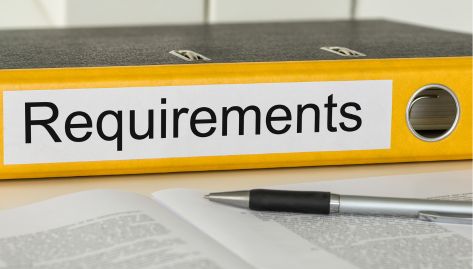Whose Job Is It, Part 1
Property management responsibilities are often complex and varied. Many property owners and agents ask the same question: Whose job is it? In affordable housing, the answer depends on the size of the company, the property’s structure, and HUD compliance requirements.
This week’s Tuesday Tip with Vickie Bell dives into staffing roles, oversight needs, and the importance of clear responsibilities. From regional managers to assistant managers, every role plays a part in keeping properties compliant and residents supported.
Regional Managers: Oversight and Compliance
At the top of many property management structures are regional managers. Sometimes called senior managers or portfolio managers, their primary duty is oversight. They ensure property managers remain compliant with HUD rules and company policies.
Large companies almost always have regional managers. Mid-sized companies may or may not. Small companies usually do not. In smaller organizations, property managers often serve as both the site manager and regional oversight.
Regional managers are not only compliance checkers but also support systems. They guide managers through HUD rule changes, compliance updates, and gray areas within the HUD Handbook 4350.3.
For updates on HUD policies, visit HUD Multifamily Housing Programs and check out Navigate’s own HUD compliance updates.
Property Managers: Daily Operations and Tenant Care
The property manager—also called a site manager—carries the weight of daily operations. Their responsibilities include:
- Advertising vacancies
- Screening applicants, including background and sex offender checks
- Collecting rent and deposits
- Handling tenant complaints and disputes
- Managing evictions in line with local law
- Conducting move-in and move-out inspections
- Scheduling preventive maintenance
- Ensuring compliance with city codes and HUD inspections
In larger companies, many of these responsibilities are divided across departments. In smaller companies, the property manager handles almost everything.
Clear documentation is critical. Move-in and move-out inspections must be signed and dated by both management and the resident. These forms are key to defending property conditions during disputes.
Assistant Managers: Support and Teamwork
The assistant manager acts as a backup to the property manager. Their duties vary depending on the company, but often include:
- Helping with move-in procedures
- Drafting maintenance requests
- Supporting resident communication
- Assisting with inspections and disputes
- Coordinating small events or resident engagement activities
While their role is flexible, assistant managers are essential for keeping operations steady. Teamwork between the manager and assistant is vital. As Vickie Bell emphasizes, “Your property will only run smoothly if you have teamwork.”
Why Clear Roles Matter
During Management and Occupancy Reviews (MORs), compliance is the top concern. Regardless of company size, HUD expects:
- Complete and organized resident files
- Accurate certifications and timelines
- Proper waiting list management
- Documented inspections
- Up-to-date compliance with HUD notices
Smaller companies often face the biggest challenges. when it comes to property management responsibilities. Without departments or regional oversight, a single property manager may carry it all. That’s why resources, training, and industry networking are essential.







